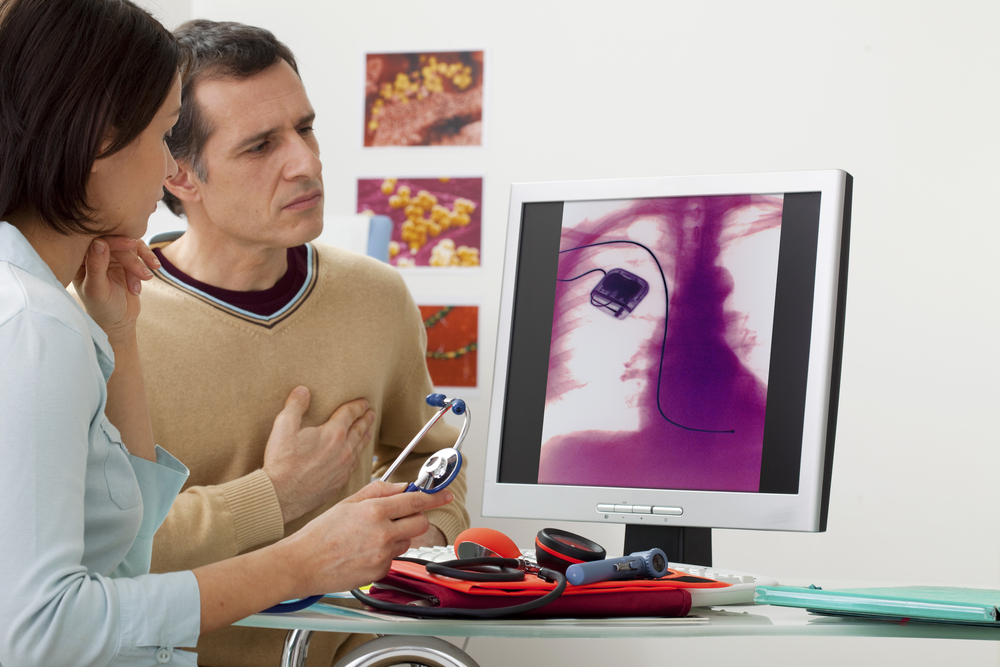A pacemaker is a small medical device used to treat certain heart rhythm problems, specifically irregular or slow heartbeats (arrhythmias).
It is implanted under the skin, usually in the chest area, and connected to the heart through thin wires called leads.
The main purpose of a pacemaker is to monitor the heart’s electrical activity and, if necessary, send electrical signals to regulate the heart rate and rhythm. When the heart’s natural electrical system malfunctions or becomes too slow, the pacemaker will emit electrical impulses to stimulate the heart muscle, helping it maintain a regular and appropriate rhythm.
But what are the dos and don’ts after pacemaker surgery? Let’s find out together so that we can each other prevent problems and not cause them more.
Table of Contents
What Happens After Pacemaker Implantation?
Implanting a pacemaker is a minimally invasive procedure. The recovery process is typically quick and easy. For a few days, there can be pain at the incision site.
Your doctor might advise you to avoid strenuous activities and heavy lifting for a week or two. After two to three weeks, the incision site is often fully healed, and you shouldn’t be subject to any more limitations.
You should keep an eye out for any bleeding or infection symptoms during this time, such as:
- Increase in redness
- Worsening pain
- Swelling
Your pacemaker will need to be examined on a regular basis to make sure it is operating appropriately and that its battery has enough power. Typically, you can perform these pacemaker checks wirelessly at home with particular equipment your healthcare practitioner will give you for remote monitoring.
Suggested Read: What is a Dangerous Heart Rate vs Normal Heart Rate?
What are the Dos and Don’ts after Pacemaker Surgery?
When you have a pacemaker, there are certain precautions and considerations you need to keep in mind to ensure its proper functioning and overall safety.
While pacemakers are designed to improve the heart’s rhythm and quality of life, some activities and devices may interfere with their operation.
Dos
Here are some things you can do or use with caution if you have a pacemaker:
Household Appliances
You can use household appliances without worry. Common household appliances like microwaves, blenders, computers, and TVs do not pose any risk to pacemakers.
Physical Activity
You can usually perform routine physical activities and exercises. Experts at Hameed Latif Hospital say that in general, safe exercises include cycling, swimming, walking, and low-impact aerobics. Before beginning a new workout regimen or taking part in more strenuous physical activities, always check with your doctor.
MRI
One of the dos out of dos and don’ts after pacemaker surgery is that some pacemaker models are MRI-compatible, but not all. Check with your doctor to see if you have an MRI-compatible pacemaker.
Dental Procedures
Inform your dentist and medical professionals about your pacemaker before any dental or medical procedures. Most routine procedures are safe, but some precautions may be necessary.
Physical and Emotional Stress
With a pacemaker, emotional and physical stress like excitement, fright, or exercise is usually safe. In these circumstances, the pacemaker will respond to your heart’s needs.
Suggested Read: How to stop a heart attack?
Don’ts
Here are some things you should avoid or use with caution if you have a pacemaker:
Strong Magnetic Fields
Dr. Muhammad Kashif Zafar who is one of the top cardiologists in Pakistan says that pacemaker operation can be hindered by strong magnetic fields. It is one of the dont’s out of all the dos and don’ts after pacemaker surgery. Stay away from things that have strong magnets, such as MRI machines, machinery, or large speakers. To avoid any potential interference with your pacemaker, keep a safe distance from these devices.
Cell Phones
Keep cell phones and other electronic devices at least 6 inches away from your pacemaker. Although modern cell phones pose minimal risks, maintaining this distance ensures minimal electromagnetic interference.
High-Intensity Electrical Devices
Avoid coming too close to equipment like radiofrequency (RF) heaters, welding supplies, and strong electrical generators that produce intense electromagnetic fields.
Metal Detectors
Another don’ts out of the dos and don’ts after pacemaker surgery is metal detectors. While most modern metal detectors and security systems are safe, it is wise to inform security personnel about your pacemaker. They may use a handheld wand instead of a walk-through metal detector to avoid unnecessary exposure to magnetic fields.
High Voltage Areas
One of the don’ts0 out of the dos and don’ts is to avoid going into or working in places containing high-voltage machinery or substations. These locations have the potential to produce intense electromagnetic fields that could harm your pacemaker.
Other Medical Procedures
Other medical procedures may also have an impact on pacemakers besides the dos and don’ts after pacemaker surgery. These consist of:
- Utilizing sound waves, lithotripsy treats kidney or gallstones
- Pain management devices are known as transcutaneous electrical nerve/muscle stimulators (TENS)
- During surgery, electrocautery is used to control bleeding
- Using microwaves or electromagnetic radiation to heat tissues, known as diathermy
When to See a Cardiologist
Pacemakers are intended to preserve or improve your lifestyle, not to restrict it. And this is generally what takes place. None of the measures you must take after the implantation surgery are particularly tough, and you won’t have to deal with most of them on a daily basis. Once your pacemaker is placed, you can generally carry on with your typical activities without ever giving it a second thought. Don’t worry too much about the dos and don’ts after pacemaker surgery. In case of any emergency or any issues make sure to visit the best cardiologist near you by contacting Healthwire.
